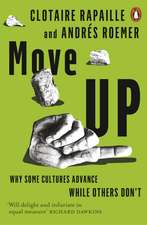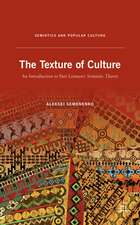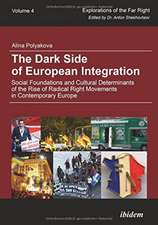The Letter of Violence: Essays on Narrative, Ethics, and Politics: New Directions in Latino American Cultures
Autor I. Avelaren Limba Engleză Paperback – 15 ian 2005
| Toate formatele și edițiile | Preț | Express |
|---|---|---|
| Paperback (1) | 380.63 lei 43-57 zile | |
| Palgrave Macmillan US – 15 ian 2005 | 380.63 lei 43-57 zile | |
| Hardback (1) | 384.31 lei 43-57 zile | |
| Palgrave Macmillan US – 15 ian 2005 | 384.31 lei 43-57 zile |
Din seria New Directions in Latino American Cultures
-
 Preț: 298.91 lei
Preț: 298.91 lei -
 Preț: 301.72 lei
Preț: 301.72 lei -
 Preț: 303.28 lei
Preț: 303.28 lei -
 Preț: 312.97 lei
Preț: 312.97 lei -
 Preț: 278.55 lei
Preț: 278.55 lei -
 Preț: 197.33 lei
Preț: 197.33 lei -
 Preț: 357.57 lei
Preț: 357.57 lei -
 Preț: 302.20 lei
Preț: 302.20 lei -
 Preț: 302.20 lei
Preț: 302.20 lei -
 Preț: 383.93 lei
Preț: 383.93 lei -
 Preț: 386.22 lei
Preț: 386.22 lei -
 Preț: 386.81 lei
Preț: 386.81 lei - 15%
 Preț: 693.57 lei
Preț: 693.57 lei -
 Preț: 385.62 lei
Preț: 385.62 lei -
 Preț: 389.70 lei
Preț: 389.70 lei -
 Preț: 379.09 lei
Preț: 379.09 lei -
 Preț: 414.30 lei
Preț: 414.30 lei - 15%
 Preț: 497.45 lei
Preț: 497.45 lei - 15%
 Preț: 640.88 lei
Preț: 640.88 lei -
 Preț: 387.38 lei
Preț: 387.38 lei -
 Preț: 379.09 lei
Preț: 379.09 lei -
 Preț: 387.75 lei
Preț: 387.75 lei - 15%
 Preț: 639.25 lei
Preț: 639.25 lei - 15%
 Preț: 581.98 lei
Preț: 581.98 lei - 15%
 Preț: 640.06 lei
Preț: 640.06 lei -
 Preț: 388.34 lei
Preț: 388.34 lei -
 Preț: 386.81 lei
Preț: 386.81 lei -
 Preț: 385.84 lei
Preț: 385.84 lei -
 Preț: 383.71 lei
Preț: 383.71 lei -
 Preț: 384.86 lei
Preț: 384.86 lei -
 Preț: 386.22 lei
Preț: 386.22 lei -
 Preț: 387.96 lei
Preț: 387.96 lei -
 Preț: 388.72 lei
Preț: 388.72 lei -
 Preț: 380.45 lei
Preț: 380.45 lei
Preț: 380.63 lei
Nou
Puncte Express: 571
Preț estimativ în valută:
72.83€ • 76.24$ • 60.62£
72.83€ • 76.24$ • 60.62£
Carte tipărită la comandă
Livrare economică 31 martie-14 aprilie
Preluare comenzi: 021 569.72.76
Specificații
ISBN-13: 9781403967428
ISBN-10: 1403967423
Pagini: 194
Ilustrații: X, 194 p.
Dimensiuni: 140 x 216 x 11 mm
Greutate: 0.24 kg
Ediția:2005
Editura: Palgrave Macmillan US
Colecția Palgrave Macmillan
Seria New Directions in Latino American Cultures
Locul publicării:New York, United States
ISBN-10: 1403967423
Pagini: 194
Ilustrații: X, 194 p.
Dimensiuni: 140 x 216 x 11 mm
Greutate: 0.24 kg
Ediția:2005
Editura: Palgrave Macmillan US
Colecția Palgrave Macmillan
Seria New Directions in Latino American Cultures
Locul publicării:New York, United States
Cuprins
Introduction: 20th Century Thinking on Violence * Specters of Walter Benjamin: Mourning, Labor, and Violence in Jacques Derrida * Torture, Confession, and the History of Truth: From Plato to Pinochet * Ethics Across Neocolonial Borders: Jorge Luis Borges and the International Division of Intellectual Labor * Transculturation and Civil War: The Origins of the Novel in Colombia * Afterword: On Violence, Law, and Justice
Recenzii
"Excellent, ground-breaking ... The topic of The Letter of Violence is a timely one, and one to which Avelar does justice." - George Yudice, Director, Center for Latin American and Caribbean Studies, New York University
"The Letter of Violence addresses crucially important topics - violence, torture,truth and war - as they are scrutinized in contemporary political theory,philosophy, ethics and literature. Drawing on recent Latin American history and literature, Avelar goes beyond the regional scenario to explore the links between rhetorical,literary, political and juridical instances of violence. Rejecting functional or cause-and-effect explanations, he debates issues raised by Derrida, Virilio,Scarry, Nussbaum, and Benjamin, among others. The breadth of vision make the book essential reading for our time." - Jean Franco, Columbia University
"This new book by Idelber Avelar offers a timely reflection on the representation of violence by modern social thinkers. With powerful readings of political and cultural theorists extending from Marx and Arendt to Benjamin and Derrida, Avelar urges us to consider both the ethical questions behind the discourse on violence and the role of high culture in the portrayal of human suffering. Literature becomes an important source of ethical and critical theory as Avelar draws upon Borges as well as a wide range of Colombian writers in order to point to the linkages between symbolic instances of violence and violence perpetrated by the law. As a whole, The Letter of Violence forces us to grapple with the complicity, once noted by Benjamin, between civilization and barbarism and the degree to which violence underlies our assumptions about modernity and social justice." - Francine Masiello, University of California at Berkeley
"The essays collected in this book are most timely. Idelber Avelar discusses the ethical questions raised by war, violence and torture, and specifically the profound links between language and violence. With novel freshness, the author has also confronted those themes in 19th century Colombian novels. The point of departure is a consideration of philosophical and historical reflections by von Clausewitz, Walter Benjamin, Derrida, Frantz Fanon, Hannah Arendt, Foucault and Paul Virilio. Alvelar draws the attention of the reader to the urgent relevance of such debates to the history of modern Latin America. This thought provoking book deserves to be widely read." - Arcadio Díaz Quiñones, Princeton University
"The Letter of Violence addresses crucially important topics - violence, torture,truth and war - as they are scrutinized in contemporary political theory,philosophy, ethics and literature. Drawing on recent Latin American history and literature, Avelar goes beyond the regional scenario to explore the links between rhetorical,literary, political and juridical instances of violence. Rejecting functional or cause-and-effect explanations, he debates issues raised by Derrida, Virilio,Scarry, Nussbaum, and Benjamin, among others. The breadth of vision make the book essential reading for our time." - Jean Franco, Columbia University
"This new book by Idelber Avelar offers a timely reflection on the representation of violence by modern social thinkers. With powerful readings of political and cultural theorists extending from Marx and Arendt to Benjamin and Derrida, Avelar urges us to consider both the ethical questions behind the discourse on violence and the role of high culture in the portrayal of human suffering. Literature becomes an important source of ethical and critical theory as Avelar draws upon Borges as well as a wide range of Colombian writers in order to point to the linkages between symbolic instances of violence and violence perpetrated by the law. As a whole, The Letter of Violence forces us to grapple with the complicity, once noted by Benjamin, between civilization and barbarism and the degree to which violence underlies our assumptions about modernity and social justice." - Francine Masiello, University of California at Berkeley
"The essays collected in this book are most timely. Idelber Avelar discusses the ethical questions raised by war, violence and torture, and specifically the profound links between language and violence. With novel freshness, the author has also confronted those themes in 19th century Colombian novels. The point of departure is a consideration of philosophical and historical reflections by von Clausewitz, Walter Benjamin, Derrida, Frantz Fanon, Hannah Arendt, Foucault and Paul Virilio. Alvelar draws the attention of the reader to the urgent relevance of such debates to the history of modern Latin America. This thought provoking book deserves to be widely read." - Arcadio Díaz Quiñones, Princeton University













